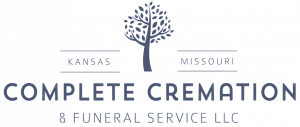FREQUENT QUESTIONS
FrequentLY ASKED Questions
Click on the questions below to reveal each respective answer.
-
How popular is cremation?
The number of cremations in the United States has steadily risen from about 15% of deaths in the mid-90s to over 53% in 2018. By 2023, the US cremation rate is projected to reach 59.4%. Cremation is often chosen because it’s more simple and economical, allows more flexibility in funeral and memorial services, or uses less of our land resources than traditional earth burial.
-
What is cremation?
Cremation is the process of reducing the body to ashes and bone fragments through the use of intense heat and flame. The process usually takes from two to four hours (approximately 1 hour for every 100 lbs of body weight). The cremated remains are then pulverized to break up larger bone fragments to a granular texture.
-
What is “Direct Cremation”?
With this affordable option, the body is cremated shortly after death, without embalming, viewing or visitation. At Complete Cremation, we offer the 'Simple Cremation' at an all-included price of $1195. This includes the necessary paperwork, basic services fee, transportation, a container for cremation, the crematory fee, a black plastic urn, and 1 certified copy of the death certificate.
-
Is embalming required for cremation?
In the State of Missouri, embalming is not required by law. Depending on the services planned for your loved one, the funeral home may require embalming (such as if a public viewing is planned). Embalming is rarely necessary for direct cremation without services or a viewing. At Complete Cremation, we offer families a final private identification viewing for no additional cost.
-
Is a casket required for cremation?
No, a casket is never required for cremation. However, Missouri Law does require a cremation container that encases the body to be made of a rigid, combustible material (like fiberboard or cardboard). Under federal regulations, all funeral providers must make available an inexpensive cremation container, often referred to as an “alternative container.” Or you can make or furnish your own suitable container instead.
-
Can a casket be rented for viewing?
Yes. We offer a traditional oak casket for rental ($495) which can be used for a visitation or church service. After the viewing or service, the body is transferred out of the casket and into the retort for cremation.
-
Do I have to buy an urn?
No. While we have a wide variety of urns at competitive prices (starting at $35), many of our families use the simple black plastic container which is standard for crematories. This container is perfectly adequate for burial, shipping, storing, or placing in a columbarium.
-
How is a body prepared for cremation?
If you choose to have a funeral with the body present, the decedent will be prepared in much the same way as for traditional burial. This includes washing and disinfecting the body, arterial embalming, dressing and cosmetizing.
If you choose a direct cremation, the body will be placed into an alternate container (a corrugated cardboard box) in much the same manner as it arrives at our facility. We do not generally remove clothing (unless there is a lot of metal on it or the family requests it back). We are required to remove any battery-powered implanted medical devices (like pacemakers and pain pumps) as these explode in the cremation retort and pose a safety hazard to our staff.
-
How can I be sure I have the remains of my loved one?
At Complete Cremation, we take the identification of everyone we care for very seriously. During our intake process, each body is assigned an individual stainless-steel ID card with a control number. This control number is affixed to the body and follows it throughout the cremation process. We also take fingerprints of each person in our care as well as notes on tattoos, scars, hair color & length, and the clothing they are wearing at the time they’re brought to our facility. If you have any questions about our process, please don’t hesitate to ask!
-
Can more than one body be cremated at the same time?
Rarely. Only in certain cases, usually a mother and child that have died at the same time, will more than one body be cremated at the same time. In the State of Missouri, multiple cremations must be specifically authorized by the family in writing. At Complete Cremation, it is our standard process to cremate bodies individually, and fully sweep the cremation retorts between each cremation.
-
How can I be sure I’m getting a reputable cremation company?
Whether you are choosing cremation or in-ground burial, your best protection is to do research before you enter into any type of agreement. Read Google Reviews and testimonials. Look for news articles or content about the company. Once you start working with a company ask questions about the qualifications of their staff, their procedures, and their processes. Listen to your gut. If you are pressured to buy certain items or you feel uncomfortable with the staff, look for another provider. Remember, the FTC’s Funeral Rule requires funeral providers to provide pricing up front and over the telephone. They must also present you with a full range of options, not just the most expensive ones. At Complete Cremation, our front door is always open to client families.
-
Can our family watch the cremation?
Our facility is open to all of our client families. We can facilitate a “Witnessed Cremation,” which allows close family members to participate in the initial stages of the cremation process. This includes watching the alternate container enter the cremation retort, and starting the electronic process which fires up the machine. Although very few families choose to participate in the process, it can be a great opportunity for closure and one last goodbye.
-
What can I do with the cremated remains?
You have a wide range of choices. They can be put in a niche in a columbarium, buried, scattered, or kept by the family. Cremated remains might be divided among family members to be kept, sprinkled or buried in several different places (i.e. with a first and second spouse). The ashes are sterile and pose no health hazard. Their disposition is generally not regulated by law.
-
When I pre-plan services, how can I be sure the money is safe?
At Complete Cremation, we use contracts written with Funeral Directors Life Insurance Company, or the Missouri Funeral Trust, Inc. (MFT), a non-profit group whose charter is to safeguard preneed funds in the State of Missouri. Any contracts we write for pre-planned funeral or cremation arrangements are either written through MFT with all money being paid directly to the trust, or into an annuity with F.D.L.I.C.. We, as the funeral home/crematory, do not receive the money until the time of death and all services have been rendered to the satisfaction of our client.
-
What happens to my preneed money if Complete Cremation goes out of business?
Although our business has been running successfully for over 20 years (and served over 12,000 families), making sure your prearrangement funds are safe is very important to us. It’s why we use the Missouri Funeral Trust, Inc. (MFT) to hold all preneed funds before any services are rendered, and ensure that your contract with Funeral Directors Life Insurance Company is still in force. In the event we were to close our doors, any money paid into an MFT contract can be transferred to any other funeral home in Missouri, and your contract is still good with F.D.L.I.C. for funeral services.
-
What happens with my preneed contract if I die out-of-state?
Depending on the location of death and its proximity to Kansas City, families generally have two options when a loved one dies out-of-state:
- We can travel to the location of death, pick up the body, and transport it back to Kansas City. Alternatively, airline freight can also be arranged for the body to be transported (This is the most expensive option and we don’t usually recommend it for families).
- We can arrange to have the body cremated at a local funeral home and have the cremated remains mailed back to our facility, or to the family directly. In most cases, the only additional fee for this kind of service is a $100 mailing/shipping fee. We can almost always get a direct cremation handled out-of-state for the same price we guarantee our direct cremation will be.
-
What happens to my preneed contract if Complete Cremation raises its prices?
At Complete Cremation, we only write guaranteed preneed contracts. This means that we guarantee today’s prices on our services regardless of when the beneficiary passes away. The only thing not guaranteed on our contracts are cash advance items (which include things like certified copies of the death certificate, flowers, cemetery charges, and obituary fees). The base cost of our professional services and merchandise is always guaranteed.
-
How long does it take to get death certificates?
This varies by the circumstances surrounding the death of your loved one. If the death was unattended, and a coroner or medical examiner was involved (including in cases where an autopsy is done), it’s not uncommon for the final certification of the death certificate to be delayed by 8-15 weeks. In natural causes deaths, as long as the certifying physician is on the electronic system for death certificates, we are usually able to obtain certified copies within 7 business days of death. If the physician has failed to register for the electronic death certificate system, this can delay the process 2-4 additional weeks.
-
How many death certificates do I need?
In general, our client families usually request between 2 and 10 total copies of the death certificate. The first copy is always included in our base pricing. In Missouri, additional copies are $11 each, while in Kansas they are $20 (with an additional $22 Certified Mailing Fee per KS order). Reasons for needing more certified copies include multiple life insurance policies or trust accounts, or lots of physical assets in other jurisdictions.
A Year of Grief Support
Sign up for one year of weekly grief messages designed to provide strength and comfort during this challenging time.
Please wait
Verifying your email address
Please wait
Unsubscribing your email address
You have been unsubscribed
You will no longer receive messages from our email mailing list.
You have been subscribed
Your email address has successfully been added to our mailing list.
Something went wrong
There was an error verifying your email address. Please try again later, or re-subscribe.


